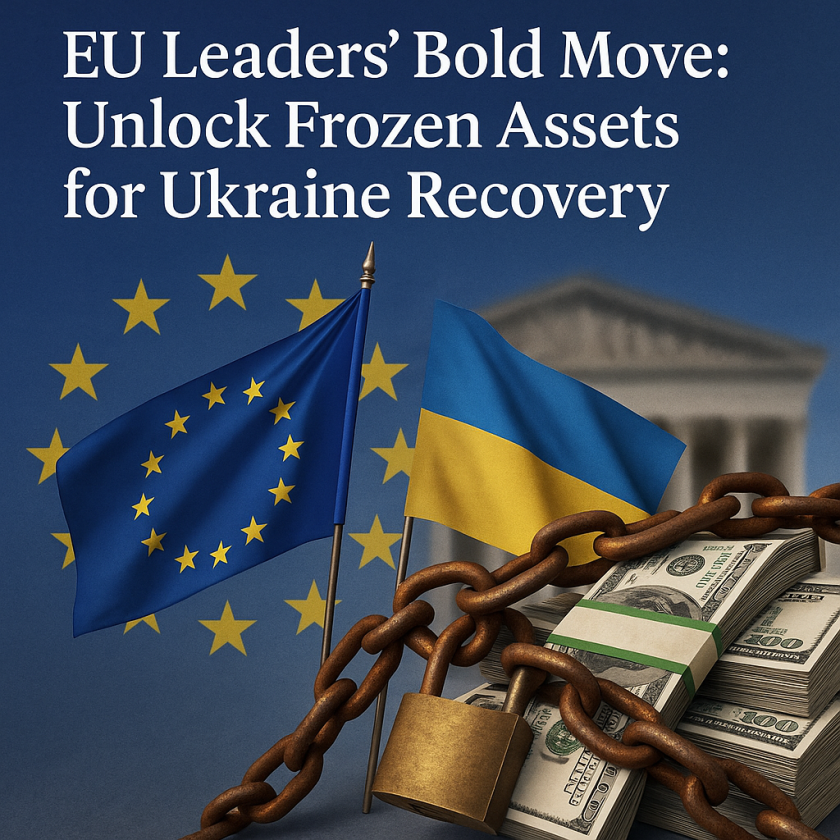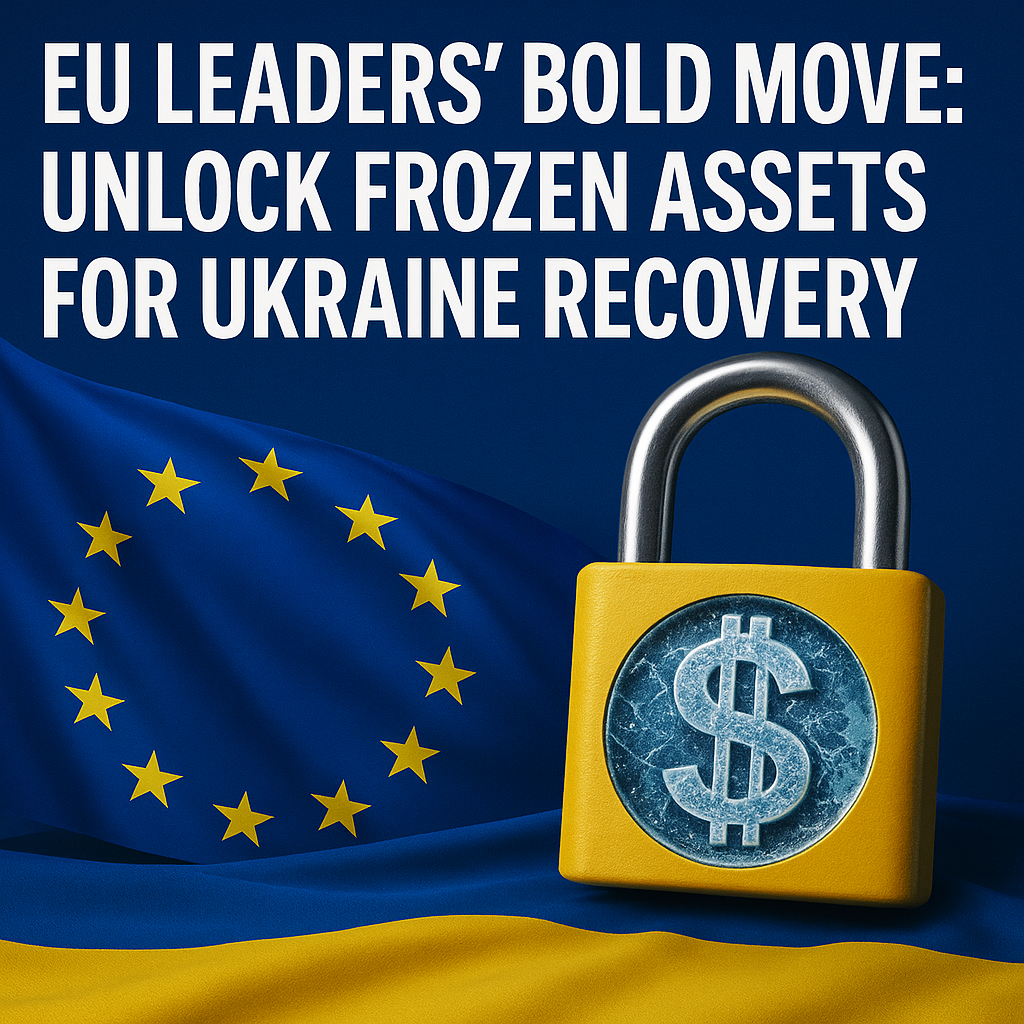EU Leaders’ Bold Move: Unlock Frozen Assets for Ukraine Recovery
EU Leaders’ Bold Move: Unlock Frozen Assets for Ukraine Recovery
The EU’s recent push to unlock frozen Russian assets marks a decisive step in support of Ukraine’s recovery in the wake of ongoing conflict. As the war continues to cripple the nation, European leaders are contemplating the legal and logistical dimensions of utilizing these assets, which could potentially amount to billions of euros.
Understanding the Proposal

In the wake of widespread international sanctions against Russia, a substantial amount of Russian assets remain frozen across Europe. This initiative seeks to repurpose those funds for Ukraine’s reconstruction efforts, addressing the vast humanitarian and infrastructural toll that the conflict has taken on the country. According to reports from Al Jazeera, EU leaders are not only advocating for this move but also exploring what legal frameworks could allow for the mobilization of these resources.
Legal Complexities and Ethical Considerations
While the proposal has garnered significant support, it also raises several ethical and legal questions. Critics argue that repurposing frozen assets could undermine the principles of international law and property rights. As articulated in various news articles, including those from Sky News, the challenge lies in navigating the legal landscape without setting dangerous precedents that could affect future international relations.
Contrastingly, proponents believe this is a unique circumstance necessitating bold action. They assert that the dire need for reconstruction in Ukraine justifies such a move. The sheer scale of destruction—estimated in the hundreds of billions—calls for extraordinary measures. This perspective reflects a broader sentiment within the EU that sees the recovery of Ukraine as not merely beneficial but essential for regional stability.
Perspectives from the Front Lines
The voices from Ukraine itself resonate with urgency. Officials in Kyiv are welcoming the EU’s move, hoping that this financial influx could accelerate reconstruction timelines. Ukrainian President Volodymyr Zelensky emphasized that “every day counts” in the rebuilding process. Reports from various outlets, including RT, cite concerns that delays in humanitarian aid and recovery efforts could fortify Russian positions while diminishing morale among the Ukrainian populace.
Yet, not everyone agrees on the practicality of this initiative. Some analysts caution that the unlocking of assets must be handled judiciously. Concerns center on how such actions might escalate tensions with Russia, which could retaliate with its own economic or military responses. This creates a complex balancing act for the EU, as it aims to support Ukraine while avoiding a further deterioration of the geopolitical landscape.
Possible Outcomes and Future Implications
As discussions escalate, the implications of unlocking these assets extend beyond immediate financial relief. Opinions are divided on whether this could set a precursory model for addressing conflicts elsewhere or lead to a slippery slope eroding international legal safeguards. Moreover, the efficiency of channeling these funds into tangible reconstruction efforts remains a significant consideration.
Transparency and Oversight Are Key
One of the substantial concerns revolves around the framework for oversight and accountability. If these assets are unlocked, ensuring transparency in their use will be paramount to maintain public trust and support from the international community. Proposals suggest creating independent oversight committees to monitor how these funds are utilized in Ukraine, aiming to mitigate risks of misallocation.
Additionally, there is a need for popular support within European nations, which could waver if citizens perceive a lack of oversight or if funds are not used effectively. Engaging in open dialogues with citizens and stakeholders may enhance public backing and cooperation in execution.
Conclusion: A Bold but Necessary Step
The EU’s move to unlock frozen Russian assets represents a bold step into uncharted territory. While it holds potential for accelerating Ukraine’s recovery, the accompanying legal, ethical, and practical challenges warrant careful consideration. As international stakeholders weigh these factors, the evolution of this initiative will undoubtedly shape the future of both Ukraine and EU-Russia relations.
With various viewpoints in play, a concerted effort towards transparent governance over any unlocked assets will determine whether this initiative is a successful model for future international interventions or a complicated legal precedent that complicates future conflicts. As Europe navigates this delicate path, the stakes remain high—not just for Ukraine, but for the principles of international law itself.




































